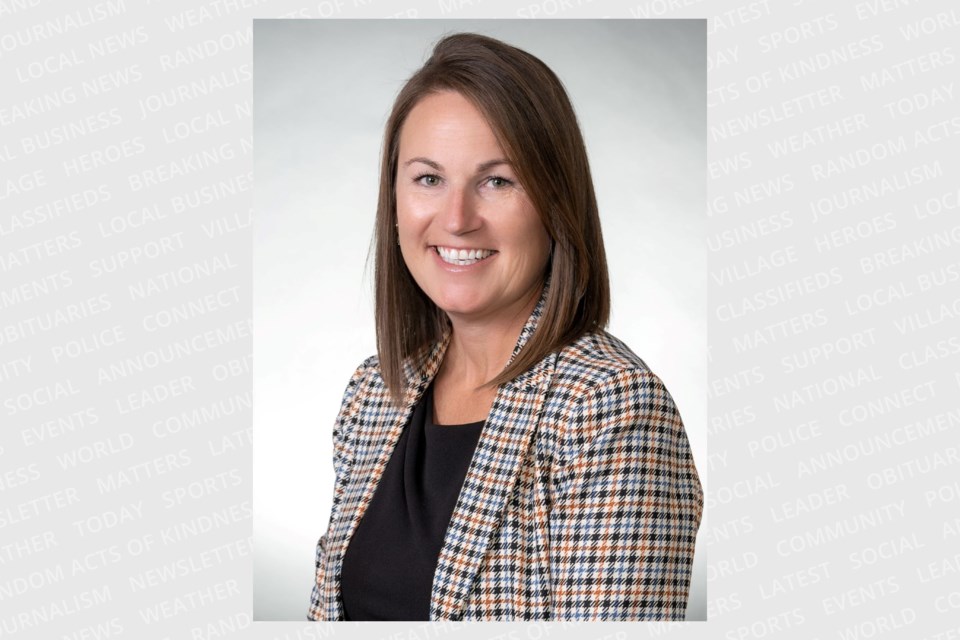Simcoe County councillors are joining in the chorus of fellow municipal voices in an effort to put a stop to harassment and abuse in public office.
Springwater Township Mayor Jennifer Coughlin, who also serves as the county's deputy warden, introduced a motion during the county’s committee of the whole meeting this week related to the Stopping Harassment and Abuse by Local Leaders bill.
Bill 5 amends Municipal Act 2001, the City of Toronto Act 2006 and requires the code of conduct for municipal councillors and members of local boards by requiring them to comply with workplace violence and harassment policies.
The amendments also allow municipalities and local boards to direct the integrity commissioner to apply to the court to vacate a member’s seat if the commissioner’s inquiry determines the member has contravened the code of conduct by violating those policies.
Midland Mayor Bill Gordon said the item will be discussed at an upcoming meeting with his local council and he plans to ask his colleagues there to endorse the motion for what he said are “desperately needed changes.”
“It’s unfortunate that it’s a very small minority that brings everything we do into disrepute, but that’s all the more reason why we need to ensure there are efficient controls in place to deal with those minority issues so they don’t infect the rest of this process and parliamentary procedure," Gordon said. "I wholeheartedly support this.
“You don’t even need a criminal record check to run for office or be elected, which is just absurd," he added. "You can’t volunteer on anything these days without a criminal record check, yet you can be an elected official and responsible for multi-million-dollar budgets, so that’s a head scratcher. This is a start."
Springwater Deputy Mayor George Cabral said he voted in favour of supporting the bill at his township’s most recent council meeting.
“I think two things drive this kind of bill. What I struggle with is that it is of such narrow focus," he said. "We have a situation where this bill proposes an integrity commissioner … and I am very disillusioned that in situations where criminal activity is involved and members of municipal boards or municipalities have been charged and found criminally responsible … are not in a position to have their seat vacated.
“An individual who sits on council can perpetuate a numerous amount of crime," added Cabral, a retired police officer. "You could literally have someone who commits homicide and be found guilty and still not be asked to vacate their seat. This is backwards."
According to clerk John Daly, if a member of council misses three months of meetings consecutively, they would lose their seat, which would be the case should a member be incarcerated.
To date, 60 municipalities have formally endorsed legislation on the table to hold municipally elected officials accountable to the same standards as every other workplaces in the province.
The goal of the bill is to strengthen codes of conduct, to hold elected representatives accountable for violence and harassment in the workplace, to provide a due diligence process of removal for substantiated egregious acts of harassment, and to restrict subsequent re-election.
“For most people, if you harass someone in the most unconscionable ways, you are terminated," Coughlin said in a news release. "But for us elected officials, the maximum penalty is 90 days without pay. That needs to change."
Simcoe County's motion of support, which was endorsed by council members at Tuesday’s committee of the whole meeting, will still require ratification at the next council meeting.
Simcoe County is the second upper-tier municipality to endorse the legislation, following Niagara Region last week.
The bill also received unanimous support from the Ontario Big City Mayors last week.
Emily McIntosh, a lead advocate for Bill 5, called the issue "bigger, broader and more insidious" than just a few instances.
"This is about the rights of every Ontarian, but it is gendered. Human rights are non-negotiable," she said in a news release. "People are stepping up on councils, in communities and within government to say, ‘This ends here and it ends now’."
McIntosh and her group are conducting meetings with Members of Provincial Parliament to help them understand the urgency of the issue.
“This can no longer wait. The health of communities, the rights of Ontarians and the safety of municipal workers is at risk today," she said.



